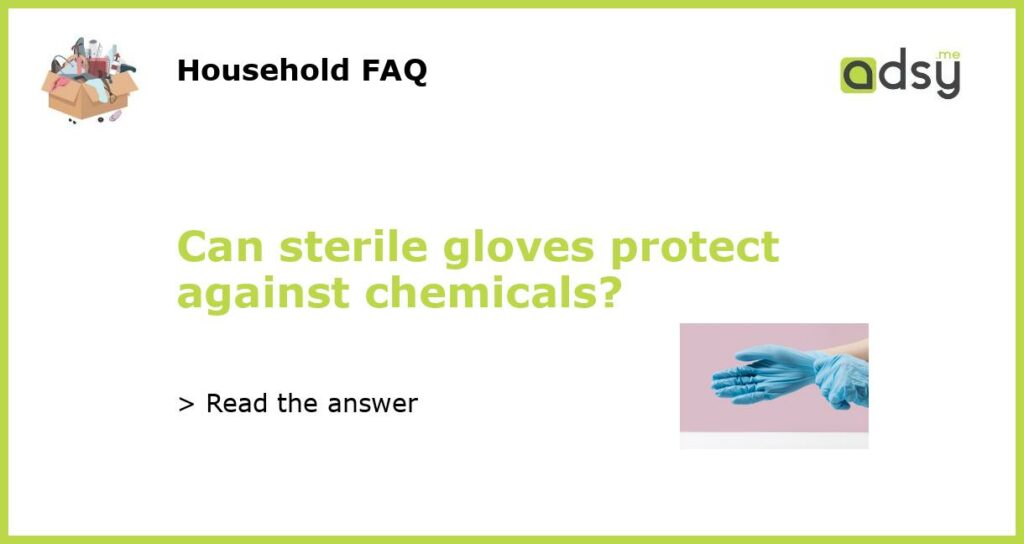Understanding the Purpose of Sterile Gloves in Healthcare
Sterile gloves play an essential role in protecting healthcare professionals and patients from potential infections during medical procedures. Designed to maintain sterility and prevent cross-contamination in sterile environments, these gloves are typically made from latex, nitrile, or other materials that offer a barrier against microorganisms. However, their primary purpose is not to protect against chemicals.
The Limitations of Sterile Gloves in Chemical Protection
While sterile gloves are effective in preventing the transfer of bacteria, viruses, and other pathogens, they are not specifically designed to safeguard against chemicals. The main reason for this is that the materials used in sterile gloves are not resistant to various chemicals commonly encountered in healthcare settings.
Chemical-Resistant Gloves for Enhanced Protection
In situations where healthcare workers may come into contact with hazardous chemicals, chemical-resistant gloves are recommended. These gloves are designed to provide a barrier against a range of chemicals, including acids, solvents, and corrosive substances. They are made from materials such as nitrile or neoprene, which offer a higher level of resistance compared to the materials used in sterile gloves.
Selecting the Appropriate Gloves for Specific Tasks
When it comes to selecting the right gloves for a specific task, it is crucial to consider the potential hazards involved. If the primary concern is the prevention of infections and maintaining sterility, sterile gloves are the best choice. On the other hand, if there is a risk of exposure to chemicals, including spills or splashes, chemical-resistant gloves should be used instead.
Balancing Protection and Comfort in Healthcare Settings
Both sterile gloves and chemical-resistant gloves serve important purposes in healthcare. However, it is important to strike a balance between protection and comfort. Sterile gloves are often thinner and more flexible, allowing for greater dexterity and tactile sensitivity. Chemical-resistant gloves, although more bulky, provide superior protection against chemicals. It is essential for healthcare professionals to assess the specific risks involved in their tasks and choose the appropriate gloves accordingly.






